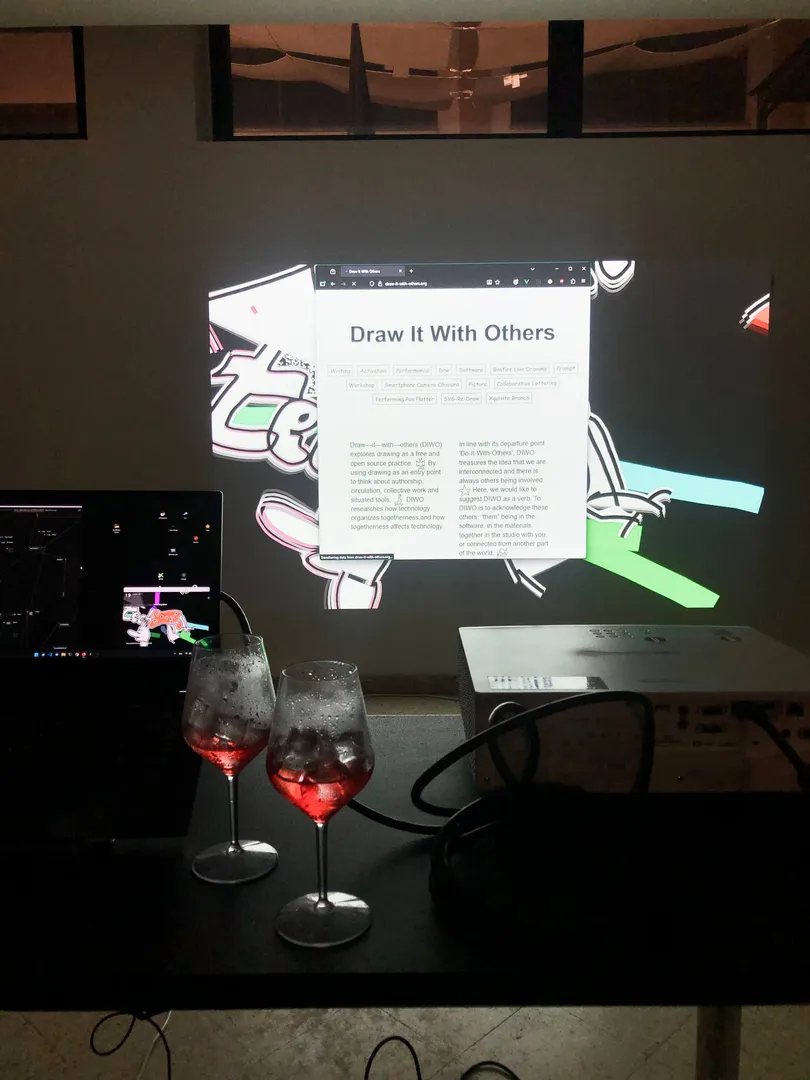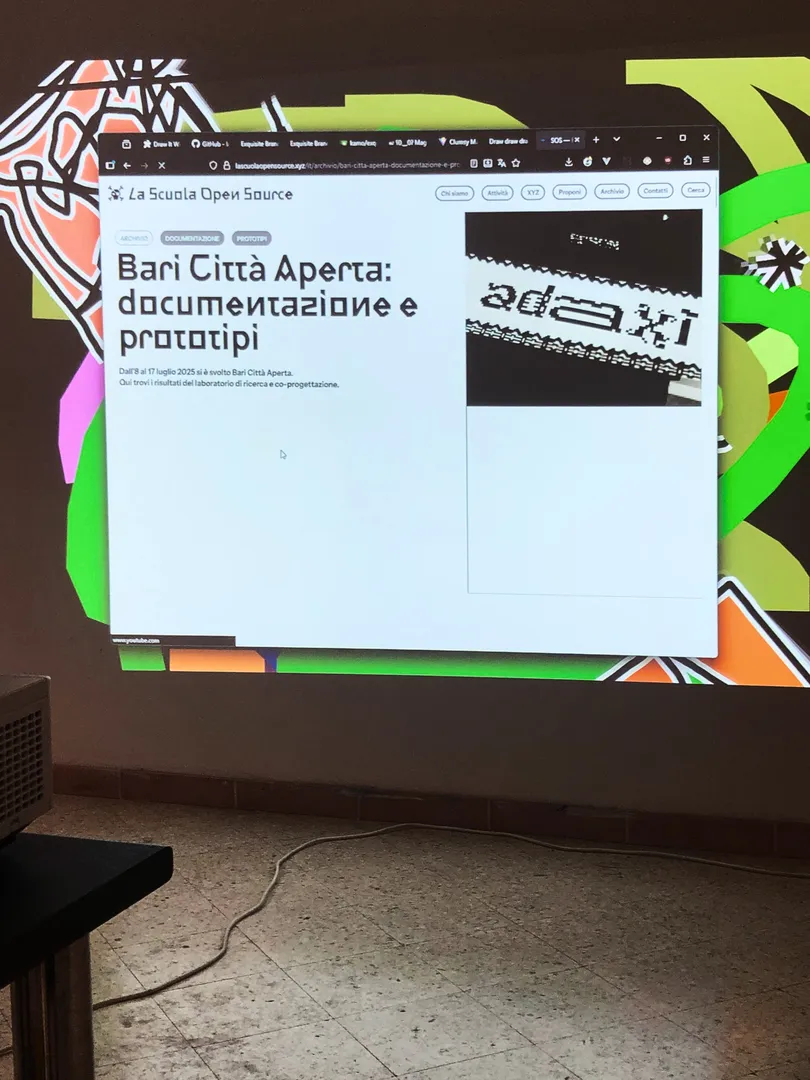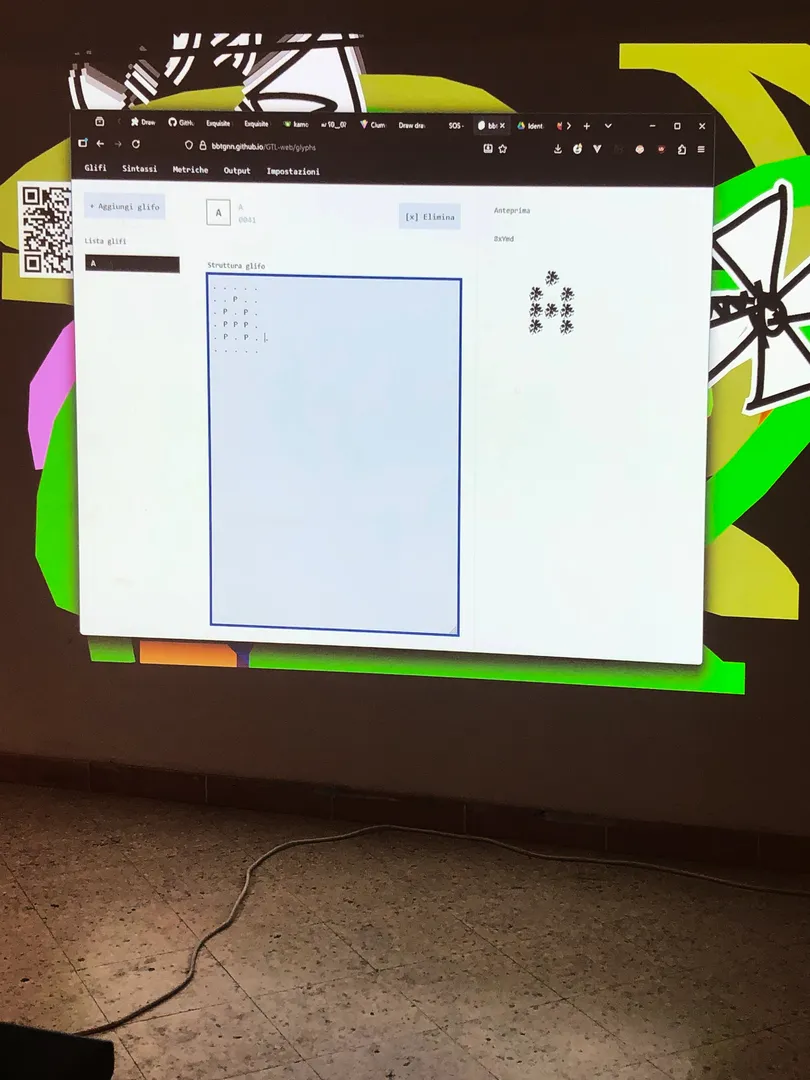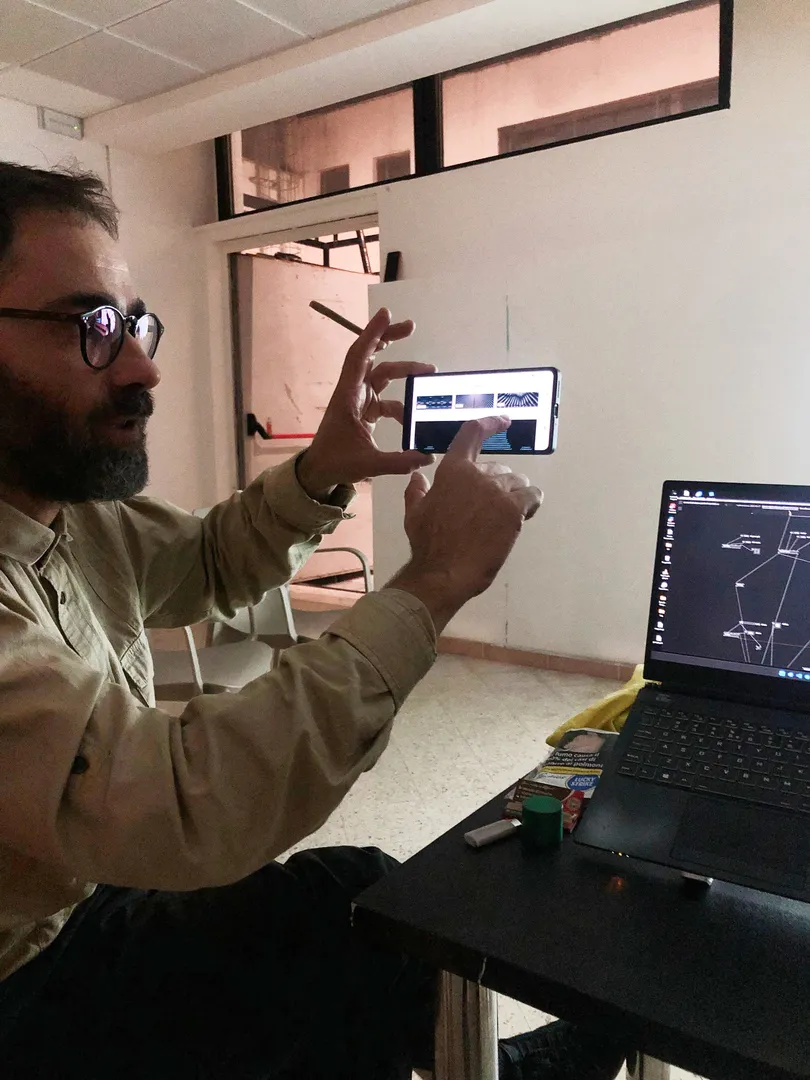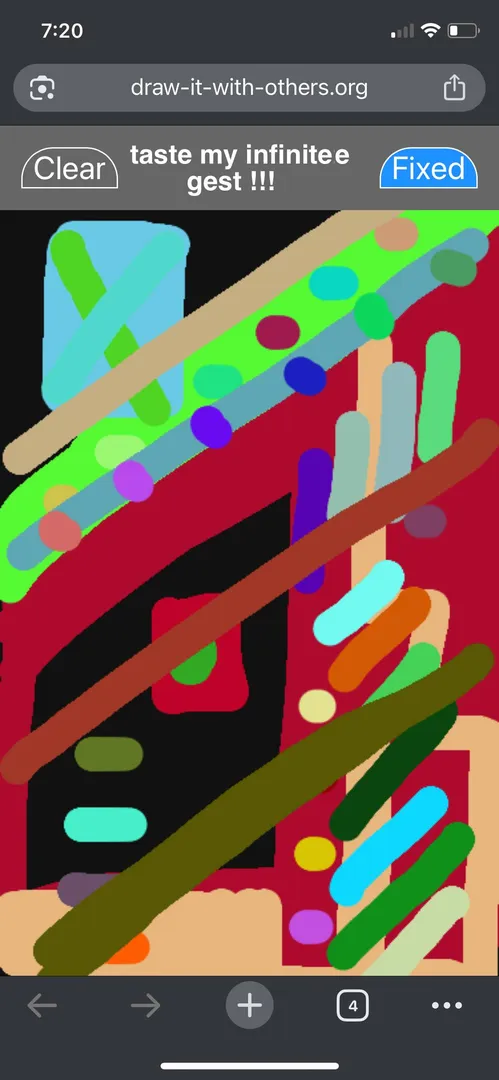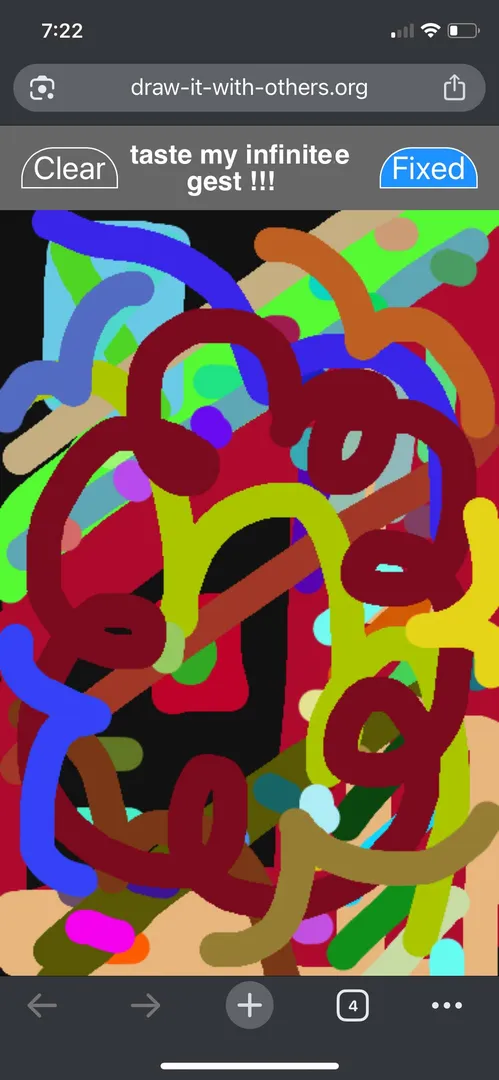Picture this: you, the DIWO Working Group, and the lovely people of La Scuola Open Source gathered in the maritime city of Bari, Apulia, in the basement of Spazio 13. It is towards the end of summer, just after sunset. As for many DIWO's activities, we are sitting in front of a projection (ehhh) with chill music playing in the background. It is a bit of an aperitivo situation, and spritz is being served. You and all the others are sending small cute drawings from your smartphone via drw, all is good.
Oh no.
Something is wrong with my laptop.
Laptop complains.
It calls for a bit of care, and I'm not listening.
I have to boot on Windows because the drw client for the Bonfire Live Drawing is made with vvvv. It decides to not connect to the public wifi. I try to hotspot with my smartphone. But we are in a basement, so the mobile network coverage is weak.
I place the smartphone outside the entrance door.
Phew ok.
Internet is flowing.
The drawings are coming in.
Well. I can't speak Italian.
As the audiences are all Italian speakers, there were moments I cannot engage compared to other DIWO contexts. This was interesting, as I was more focusing on the tools, the non-verbal communication; the DRW and Infinite Gest.
This time, I tried to construct some visual scenes when using Infinite Gest. Building something gradual with ephemeral gestures. With slowness and intention, depending on the chosen color, and the remaining visual strokes on the screen.
When using drw, I brought all my focus to the drawing contributions and tried to highlight some by sending slightly different version of them with the same style. I wondered if people who sent those drawings, realized that someone in the group was responding to their drawings. If not, I wondered, how could we create and make space for being able to recognize this small connection--this small gesture of reaching out in the midst of swarming flux of contributions?
People are so enthusiastic about drw.
The lowest threshold possible: anonymous, gestural and disposable drawings that instantly appear in the projection as soon as you press the button 'send'. This allows for quick participation and that's great. But anonymity also creates a space for contributions we found to be problematic. Some of the participants sent sporadically racist and homophobic contributions. These counted for four or five out of 700 drawings, so less than one percent, but it's enough to make us feel uncomfortable.
In the middle of the session, I noticed there were some problematic contributions coming in. Yet again, there were many contributions keep on coming, covering on top of each other, so I wasn't sure if I saw correctly or not. As there were some moments of not many live drawings coming in and more previous contributions in focus, floating, I saw those problematic contributions with clarity.
The next day, kamo and i had a long conversation how to intervene and address this action and this matter;
We usually upload the drawings on a recap page to download and reuse, but after witnessing these particular contributions, we didn´t want to host these kinds of contents. But we also didn't want to just let them slide; by simply filtering them out,
But then how?
Could it be we that address them and state the fact that there is no space for this in our practice?
So still engaging with them?
Hmmm.
How can we address this with assertiveness?
Ok. Here are some uncooked ideas
We could intervene and disrupt the problematic SVGs by obscuring or annotating or disarming or repurposing them.
We would like to implement something like a code of conduct, but not exactly a code of conduct, for the drawing tool and the next DIWO session.
We would like to reach out other collectives and communities for their advice and their lived experiences.
Find in this page a small poster generator with the drawing contributions of this Bonfire session. We decided to annotate the contribution we found problematic with some scribble noise and the stamp diwon't, because we dont want to draw this with others. Note that this is an experiment, since we are trying to figure out how to deal with these kind of situations. If you have suggestions or want to discuss about this moderation process, feel free to reach out at write@draw-it-with-others.org
